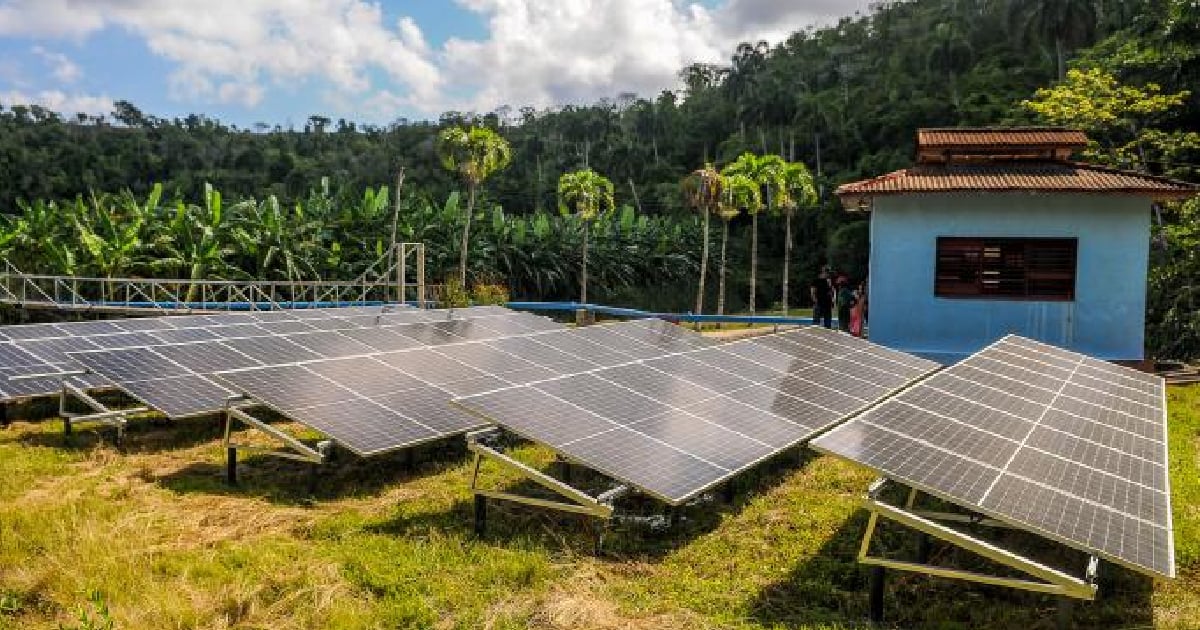
The installation of solar-powered pumping systems in rural communities of Las Tunas, aimed at addressing long-standing issues with access to drinking water, faces an unexpected threat: the theft of essential components.
In less than six months since its implementation, eight criminal incidents have been reported, causing several locations to lose service and complicating the replacement of equipment, reported the state-run newspaper Granma.
According to the Provincial Water and Sewer Company, municipalities such as Puerto Padre, Colombia, Jobabo, and Majibacoa have been the most affected. In some cases, entire communities have reverted to traditional methods to access water.
Despite efforts to strengthen security, such as cooperation agreements with neighbors and local guards, robberies continue to remain unsolved, and the stolen goods have not been recovered.
This issue also highlights a lack of consensus on the allocation of responsibilities for protecting these resources, which are essential for thousands of families.
While station operators focus on maintaining operations, communities must take a more active role in monitoring, according to local authorities.
Without joint actions and effective solutions, the country faces not only the loss of costly investments but also a setback in its energy sustainability plans and a direct impact on the quality of life of those affected.
On the other hand, the theft of dielectric oil from electrical transformers has become yet another symptom of the crisis facing Cuba, exposing the precariousness of the energy system and the regime's inability to protect vital infrastructure.
The official newspaper Sierra Maestra reported that the theft of dielectric oil, which exacerbates power outages and affects thousands of citizens in extreme conditions, will be dealt with harshly by the regime.
In mid-November, the theft of 300 liters of transformer oil left the community of Dos Caminos in the municipality of San Luis, Santiago de Cuba, without electricity, causing several days of blackout due to this incident.
All of this is happening while the island is experiencing another widespread blackout. The national power grid (SEN) completely collapsed again early Wednesday morning due to an unexpected outage at the country's largest thermoelectric plant, Antonio Guiteras in Matanzas.
This was communicated by the Electric Company of Havana through its Telegram channel, where it stated that the disconnection occurred at 2:08 AM and that work is underway to restore service.
Frequently Asked Questions about the Energy Crisis and Theft in Cuba
Why are solar panels being stolen in Las Tunas?
The theft of solar panels in Las Tunas is linked to the energy crisis facing Cuba, where the lack of access to basic resources such as water and electricity drives some individuals to commit crimes for survival. These thefts complicate the replacement of equipment and negatively impact rural communities that rely on these systems for access to drinking water.
How does the theft of dielectric oil affect the energy crisis in Cuba?
The theft of dielectric oil exacerbates blackouts and the energy crisis in Cuba. This oil is crucial for the operation of electrical transformers, and its removal causes damage to equipment, leaving entire communities without electricity. Authorities have identified this problem as one of the factors that further complicate the country's energy landscape.
What measures is the Cuban regime taking in response to the theft of energy components?
The Cuban regime has promised to harshly punish those responsible for the theft of energy components, such as dielectric oil. However, these punitive measures do not address the underlying issue of inefficiency and deterioration within the electrical system, which remains vulnerable to these crimes.
What is the current situation of the energy system in Cuba?
The energy system in Cuba is in a critical state, with a generation deficit exceeding 800 MW during peak hours. The lack of generation capacity and the deterioration of infrastructure, exacerbated by theft and fuel shortages, have resulted in prolonged blackouts that severely impact the daily lives of Cubans.
What impact does the energy crisis have on access to drinking water in Cuba?
The energy crisis in Cuba has significantly impacted access to drinking water, as power outages disrupt the operation of pumping systems. Over 600,000 Cubans currently lack access to potable water, further exacerbating living conditions on the island.
Filed under: